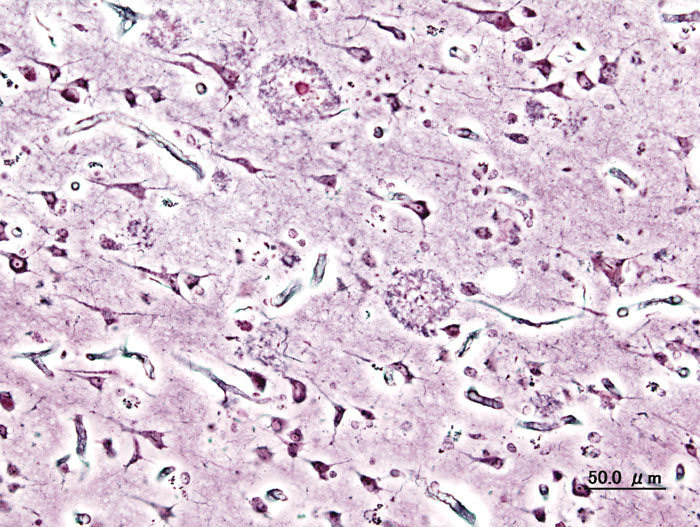Alzheimer's risk factors
Interview with
Alzheimer's disease affects around half a million of us in the UK alone, and this  number is predicted to increase as the population gets older.
number is predicted to increase as the population gets older.
However, this week a team at the University of Cambridge suggested that up to a third of cases could be preventable just by changing the way that we live. They identified several risk factors that could increase the likelihood of developing the disease, some of which simply came down to lifestyle choices.
Ginny Smith spoke to Carol Brayne, to find out just what these risky behaviours were...
Carol - So, the risk factors, they work across a life course. So, there's education, physical inactivity, smoking, there's midlife hypertension, midlife obesity, diabetes, and then depression. Individually, these have all been shown in studies to be associated with increased risk. Now, if you put them together and don't think about the relationship between them you might think that we could prevent one in two cases of Alzheimer's disease. But in fact of course, they're all clearly linked and they all work across a life course. o that when you put them altogether, it's about 1 in 3.
Ginny - Do we know what it is about things like this? Why is physical activity so important? Why are those other risk factors, why are they risk factors?
Carol - There's an enormous amount of research going on into these risk factors at the moment. We try to tease out why this protection might be there. And there are all sorts of reasons why it might occur. It might occur because the cells of our bodies work in different ways if we're very physically active and well, but it could also work in terms of the way that the neurons fire and communicate with each other, and the vessels that supply our brain with blood and with oxygenated blood, they might be working in better ways they may be more effective. So, it's about health in the whole body if you like, including the brain.
Ginny - Now, some of these risk factors you've talked about are very obviously under people's control - doing more exercise, stopping smoking, that sort of thing, but you mentioned depression as well. To me, that doesn't seem like something that is a kind of lifestyle factor. You don't choose to get depression so why is that in the same sort of category?
Carol - It's in this analysis because in the original work that was done, it was identified as being a risk factor that had been shown again and again to be associated with dementia. There is a sense that it is possible to do things about depression in societies. There are situations in which people are more likely to depressed, but also, there are effective treatments for depression. So, we don't know whether treating people with depression does overt dementia later on because that's a different type of study. But we do know that depression is associated with dementia later and that there are effective treatments for depression and there are certain social conditions which enhance depression.
Ginny - So, the fact that you say that 1 in 3 cases could be prevented, that means that someone could do all the right things, do all the exercise, not smoke, and still, get Alzheimer's. is that all down to genetics or are there other factors we maybe don't understand yet?
Carol - For the population, age is the biggest risk factor and clearly, there are some groups in the population where genetics plays an important part. And for those folk, it may be that there are drug therapies or in particular, interventions that might work in the future. But for the bulk of the population, it will be age. And so, it's difficult to say that we would prevent a third. I think it's more straightforward to say we will reduce our risk at a given age. And so, we do have some evidence from the UK that we may have reduced our risk for dementia at particular ages. It's not so much about preventing a case or that if you do these things, then you will not develop dementia. It's more about us, reducing our risk at a particular age because the things that are in these risk profiles, if we do engage as a society in more physical activity and have less diabetes and so on, then of course, we'll all live longer. And that means that we become older therefore, we're at a great risk. It's just that if we reach 65 healthy, we have a much greater chance of having a healthier old age and a shorter period of decline before we die.
- Previous Ancient tooth plaque
- Next Doing the Levy walk









Comments
Add a comment